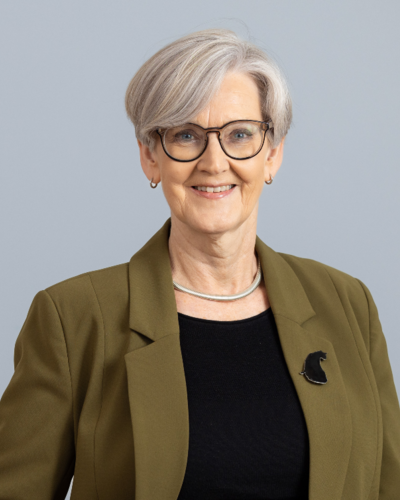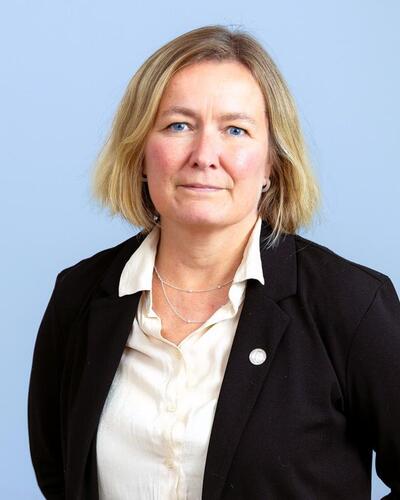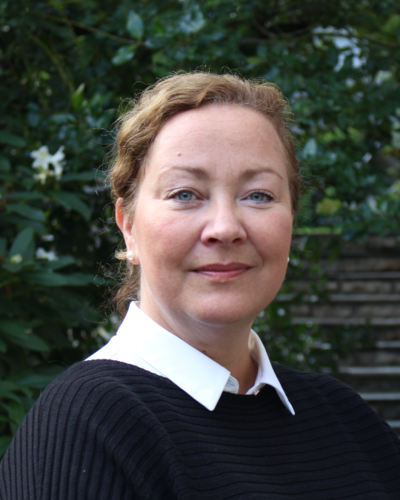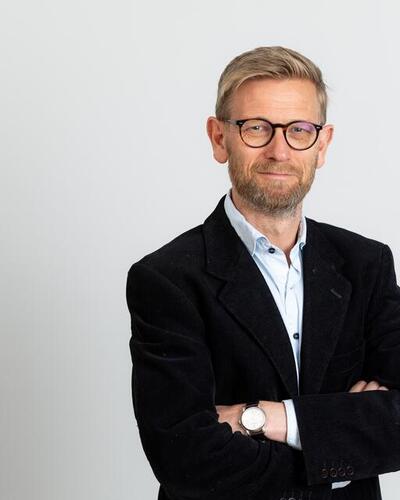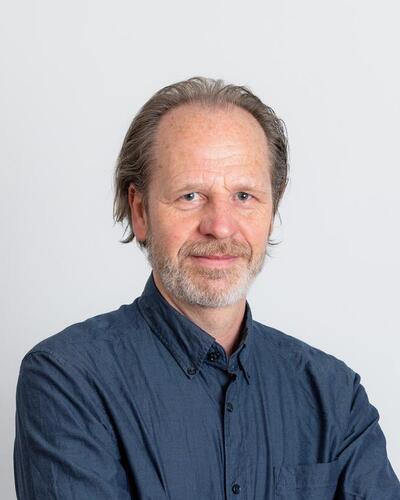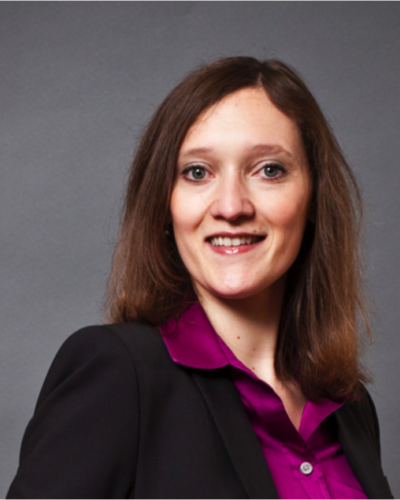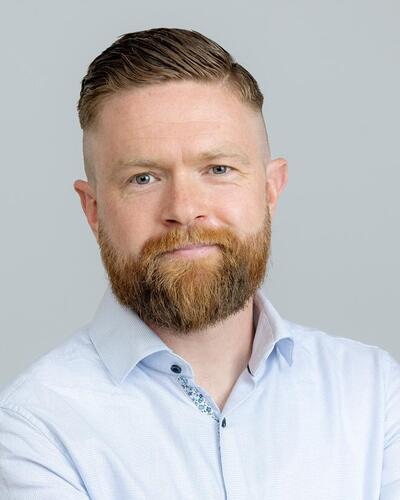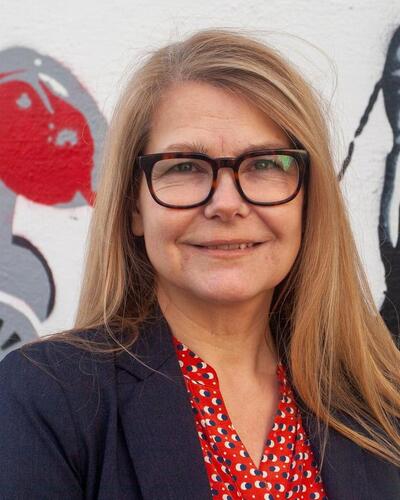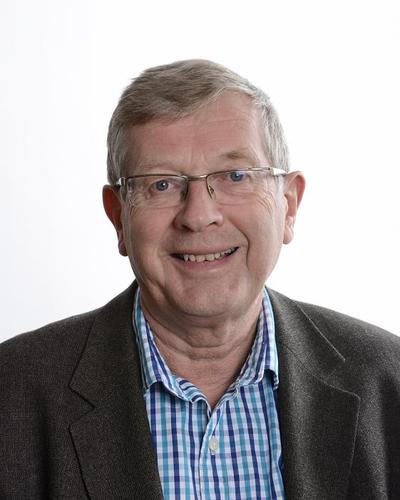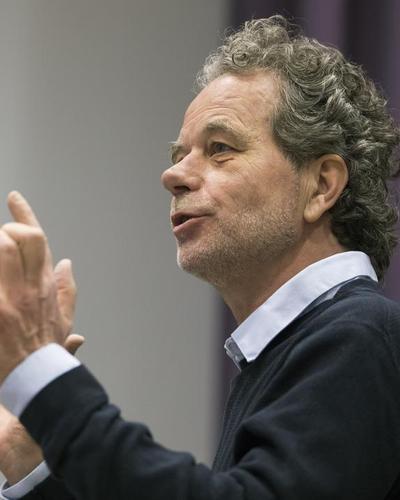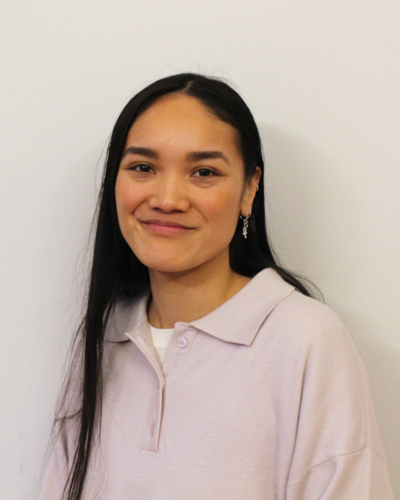Political Organization and Multi Level Governance
Political Organization and Multi Level Governance is a research group at the Department of Government. Research areas include administrative reforms and politics, and institutional change in a multi level perspective.

Hovedinnhold
The members of the research group study administrative politics, administrative reforms and institutional change in a multi level perspective. Many of the important challenges regarding design and effect of the political administrative system resides in the intersection between administrative level, ranging from the local through the regional to the national and supernational level. Furthermore, these challenges appear in the intersection between the public sector, civil society and the private sector, as well as between public officials and the administrative organ.
Research profile
New forms of governance and organization challenge established institutions. This group's research is comparatively oriented and focuses on the relations between the European level, the state level, regions and the municipal level, and on the new ways of cooperation between the public and the private sphere. Among other themes, we are concerned with how ways of governance and organization emerge and evolve through organizational innovations in the intersection between democratic governance, administration and market.
A central theme is the terms of action for active administration politics, with emphasis on the interaction between concious governance and adjustment to international doctrines and established administration culture and tradition. Furthermore, we focus on political decision-making processes and how reform design and implementation on one level affect other levels in the system of administration. This implies both increased EU integration and the interaction between national, regional and local organs of administration.
"New Public Management" oriented administration reforms, often called post-NPM or "whole-of-government" reforms holds a special focus. We study new policies in regulation and supervision, new reforms in control and revision, the emergence of information and communication technology, changes in trust and responsibility, changes in ways of coordination and specialisation, and the tension between political governance and professional autonomy in organs of administration. Another important research subject is the organization for "wicked issues" characterized by complexity and uncertainty. These are areas of politics where the problem structure exceeds policy area and level of administration, as for example societal security, climate, immigration and integration, and crime prevention.
The research group also focus on European integration processes and the effects they have on political governance, public officials' control and accountability. In Europe, changes in local, national and transnational governance is rooted in the EU, which is both affected by the member states and in turn affects them. Increased European integration has comprehensive implications for the democracy at state level and the international level. Norwegian administration is also affected by the EU through the EEA. European integration entails a complex interaction between specialized professional boards, politics and law. One of our main focuses is to map such processes of change in various areas of politics and levels of governance. European cooperation, Europeanization, constitutionalism, international integration, regimes of regulation, juridification and institution building are themes in which this research groups work on.
Theoretically, the group is rooted in a broad institutional approach which combines instrumental models, cultural perspectives and environmental adaption. A organizational theoretical approach to how formal organizations work, literature on multi-level governance, implementation og transformative approaches are central.
Ongoing projects
- Statecorp (Simon Neby og Julia Fleischer). STATECORP analyses the relevance of structural choice politics and historical legacies for corporatisation patterns in Norway and Sweden (1950–2020) as well as their consequences for organisational legitimation. The project seeks to enhance our current understanding of corporatisation at the fringes of the public sector, bridging separate literatures and taking into account the multitude of actors that are activated in (and implicated by) these dynamics. By studying the causes of corporatisation and its consequences, especially for the organisational legitimation of corporate entities, the project adds to various scholarly debates and sheds light on an oftentimes overlooked yet arguably large part of the modern democratic state. STATECORP follows an inter-disciplinary approach and links explanatory theoretical perspectives on structural choice politics and historical legacies with an evaluative theory on organisational legitimation. It applies a mixedmethod research design and combines state-of-the-art quantitative analyses with a set of historical case studies, inter alia based on extensive document analyses using also text-as-data techniques. The project generates knowledge and data relevant to various disciplines. Its findings inform debates on the structural dynamics of the democratic state and corporatisation as a key structural dynamic in the Scandinavian context, studying the importance of actors and their context as well as sectoral or organisational legacies. Likewise, its evaluative view on organisational legitimation examines how these corporate forms manage legitimation, i.e. performative, moral, technical, and legal reputation towards various audiences in society. Lastly, STATECORP provides actionable knowledge on corporatisation that is of direct use for those involved in these dynamics and their consequences.
- Norsk politirettshistorie 1686-2016 at the Faculty of Law (from this research group: Anne Lise Fimreite and Chris Hagen Magnussen). The main goal of the project is to systematically study and publish three volumes about the Norwegian police's legal history from 1686 to 2016, including an introductory chapter about the Norwegian police in the middle ages. The first volume focus on the period 1686-1940, the second volume 1940-1945, whereas the third volume focus on 1945-2016. The second goal of the project is to strengthen the research community which studies police law, the police and police work. The variety of participating research institutions is important to reach this goal. The third goal of the project is to enlighten the general public about the role in which the police plays in society. Covid-19 delayed research to some degree because of the lockdown of archives and difficulty conducting interviews. The project is in collaborating with Justismuseet (the justice museum) in Trondheim on making an exhibit and a podcast about the legal history of the Norwegian police. This is an important part of the project in the way that it allows the public to parttake in the ongoing process of defining the Norwegian police's role. Despite the project's focus being legal history, it is interdisciplinary. The project management is comprised of people with backgrounds from political science, criminal law and legal history. Furthermore, the interdisciplinarity is demonstrated by the project's authors. They have backgrounds from legal science, history, sociology and administrative science. [The project's working language is Norwegian]
- Risk communication and perception of AMR in the public and among healthcare workers: Knowledge needed to develop new policies and interventions at CAMRIA (centre for multidisciplinary research on antibiotics at HUS). Anne Lise Fimreite is leading workgroup 2 which is focusing on the public's perception of antibiotic resistance. Also associated with the project is Martin Time, Erla Løvseth and Per Lægreid. DIGSSCORE and the Norwegian Citizen Panel is also involved.
Phd projects
- Organizing for internal security and crisis management: A comparative study of central agencies in Norway and Sweden (Johannes Førde)
- Organisering for samfunnssikkerhet gjennom samvirke på lokalt og regionalt nivå (Alfa S. Winge)
- Making Public Sector Reforms Work? The significance of leaders in public reform processes (Chris Hagen Magnussen)
- What China does to gain more power (Siril Kobbeltvedt Herseth)
Part of "China and the global aid architecture: Understanding China’s evolving development assistance" at Chr. Michelsen Institutt - Understanding attitudes toward local autonomy in the Norwegian central administration (Vemund Vestre)
Finished projects
- TROPICO - Transforming into Open Innovative and Collaborative Governments Lise H. Rykkja (project leader), Line. M. Sørdal (research coordinator), Cecile Guezennec (project coordinator) og Karolina Poltorak (researcher).TROPICO investigates how European public administrations are transformed into open, innovative and collaborative governments. With a better understanding of this transformation, collaboration in policy design and service delivery can be enhanced, advancing the participation of public, private and societal actors. The development of information and communication technologies (ICT) and the process of digitalisation offer new prospects for such transformation, and for a more efficient, transparent and effective government. In our research we analyse collaboration in and by governments, for policy design and public sector service delivery, with a special emphasis on the use of ICT and digital tools. TROPICO has partners from 13 institutions in nine European countries.
- Kommunereformen (Jacob Aars) Reshaping the Map of Local and Regional Self-Government (Jacob Aars). Denne studien av den norske kommunereformprosessen fra 2014-2019 er et samarbeidsprosjekt som involverer en rekke norske og nordiske samfunnsvitere og forskningsinstitutsjoner. Prosjektets formål er å beskrive og analysere reformen fra den ble påbegynt i 2014, til den neste viktige fasen som er kommunesammenslåingen som er planlagt å bli ferdig implementert mot slutten av 2019. Kontraktshaver: Uni Research Rokkansenteret (Bergen). Finansiering: Forskningsrådet
- Lokaldemokratiundersøkelsen 2015 (Jacob Aars) er den sjette denne serien av surveyundersøkelser. Hovedtema for prosjektet er velgeratferd, partisystem på lokalt nivå, valgdeltakelse, kommunen som politisk arena, partier som mellomledd i norsk lokalpolitikk, kommunereform, eldres deltakelse og representasjon i lokalpolitikken, valgkamp og mediedekning. Kontraktshaver: Institutt for Samfunnsforskning. Finansiering: Kommunal- og moderniseringsdepartementet.
- Responding to welfare state services: An analysis of users, media, and public institutions (Jacob Aars). Dette prosjektet fokuserer på inputsiden i det norske velferdssystemet. Hensikten er å forklare etterspørselen etter, og oppslutning om velferdsordninger. Det første målet er å analysere hvordan disse tjenestene blir mottatt av brukerne og media, og å utforske det potensielle forholdet mellom brukertilfredshet og tillit til styringsmaktene. Det andre målet er å forstå hvordan input fra brukere og media blir mottatt av velferdsinstitusjoner og politikere. Prosjektet bygger på samarbeid mellom flere fagmiljø, sofistikerte metodiske teknikker og et datagrunnlag som består av kvalitative og kvantitative data. Kontraktshaver: Uni Research Rokkansenteret (Bergen). Finansiering: Forskningsrådet.
- Evaluering av forsøk med senket minstealder for valgdeltakelse ved kommunevalg (Jacob Aars). Formålet med dette prosjektet er å evaluere forsøket med senket alder for å ha få stemmerett til lokalvalg i 2015. Prosjektet er en fortsettelse av et prosjekt som ble gjennomført etter valget i 2011. Evalueringen består av fire arbeidspakker: 1) En analyse av konsekvensene av forsøket i 2011, 2) Komparative case-studier i forsøkskommunene, 3) Partier, nominasjon, valgkamp og representasjon, 4) en analyse av valgdeltakelse, velgeratferd- og holdninger. Kontraktshaver: Institutt for Samfunnsforskning. Finansiering: Forskningsrådet.
- SOG-PRO (Julia Fleischer). Forskningsprosjektet SOG-PRO utvikler og anvender et nyskapende rammeverk som systematisk vil kartlegge og forklare samvarians i organisatorisk endring i sentraladministrasjoner i fire europeiske demokratier med parlamentariske system; Frankrike, Tyskland, Nederland og Storbritannia. Prosjektet bygger på en av de mest innflytelsesrike teoriene av strukturen til-, og organiseringen av, sentraladministrasjoner, teorien om "politikken i strukturelle valg". Vi utvikler et komparativt, kvantitativt datasett av organisasjonsendringer i sentraladministrasjonen i de fire landene i perioden 1980 og 2010.
- GAP, "Government, Academics and Policy Making" (Julia Fleischer). Den tyske utgaven av GAP-undersøkelsen, en stor, internasjonal-komparativ undersøkelse, påbegynt, utviklet og testet i Storbritannia ved University of Manchester. Undersøkelsen utforsker bruken av akademisk kunnskap i prosessen med politikkutvikling. Julia Fleischer er en del av et team av forskere som foretar GAP-undersøkelsen i det tyske forbundskansleriet.
- Administrasjonsurveyen 2016 (Per Lægreid). Undersøkinga er ei vidareføring av tilsvarande undersøkingar i 1976, 1986, 1996 og 2006. Omfattande survey som sendes til eit utval ansatte i departement og direktorat. Fokus er på departements- og direktoratsansattes roller og atferdsmønster.
- Politireformen – en nullpunktsmåling (Helge Renå, Per Lægreid og Jacob Aars). Prosjektet har som formål å gi kunnskap om: i) politilederes og ansattes oppfatninger og holdninger til politireformen ved dens igangsettingsfase, ii)hva som kjennetegner politiansatte og lederes aktiviteter, og å gi resultater som vil være viktig grunnlagsdata for fremtidige norske, og nordiske, komparative forskningsprosjekt - deler av materialet kan også være aktuelt for masteroppgaver. Prosjektet gjøres gjennom en elektronisk spørreundersøkelse til hele populasjonen, det vil si alle ledere og ansatte i politiet.
- GOVCAP - Organizing for Internal Security and Crisis Management: Capacity and Legitimacy (Per Lægreid, Jacob Aars, Lise H. Rykkja).
- COCAL - Coordination, Capacity and Legitimacy: Organizing for Climate Change, Immigration, and the Police (Simon Neby, Lise H. Rykkja, Per Lægreid, Julia Fleischer).
- Evaluering av NAV: (Ny arbeids- og velferdsforvaltning) Velferdsmodellar og styringssystem (Anne Lise Fimreite, Per Lægreid, Dag Runar Jacobsen og Jacob Aars).
- Reforming the Welfare State. Accountability, Democracy and Management (Per Lægreid og Simon Neby).
- Coordination for Cohesion in the Public Sector of the Future (Per Lægreid og Lise H. Rykkja).
- Fleirnivåstyring i spenningsfeltet mellom funksjonell og territoriell spesialisering. Fokus på samfunnssikkerhet (Per Lægreid, Anne Lise Fimreite og Lise H. Rykkja).
- The Comparative Public Organization Data Base for Research and Analysis (COBRA) (Per Lægreid og Kristin Rubecksen).
- Comparative Research into Current Trends in Public Sector Organizations (COST - CRIPO) (Per Lægreid, Paul G. Roness, Kristin Rubecksen og Ole Andreas Danielsen).
- Transforming Central Agencies: Norway in a Nordic and European Perspective (Kristin Rubecksen).
Members and publications
| Research group member: | Link to CRISTIN page: |
| Arild Aurvåg Farsund | Arild Aurvåg Farsund's publications on CRISTIN |
| Anne Lise Fimreite | Anne Lise Fimreite's publications on CRISTIN |
| Lise H. Rykkja | Lise H. Rykkja's publications on CRISTIN |
| Kristin Rubecksen | Kristin Rubecksen's publications on CRISTIN |
| Jacob Aars | Jacob Aars' publications on CRISTIN |
| Dag Runar Furuheim Jacobsen | Dag Runar Furuheim Jacobsen's publications on CRISTIN |
| Fabian Hattke | Fabian Hattke's publications on CRISTIN |
| Julia Fleischer | Julia Fleishcer's publications on CRISTIN |
| Johannes Sandvik Førde | Johannes Sandvik Førde's publications on CRISTIN |
| Martin Stangborli Time | Martin Stangborli Time's publications on CRISTIN |
| Chris Hagen Magnussen | Chris Hagen Magnussen's publications on CRISTIN |
| Alfa Sefland Winge | Alfa Sefland Winge's publications on CRISTIN |
| Per Lægreid | Per Lægreid's publications on CRISTIN |
| Lars Blichner | Lars Blichner's publications on CRISTIN |
| Harald Sætren | Harald Sætren's publications on CRISTIN |

